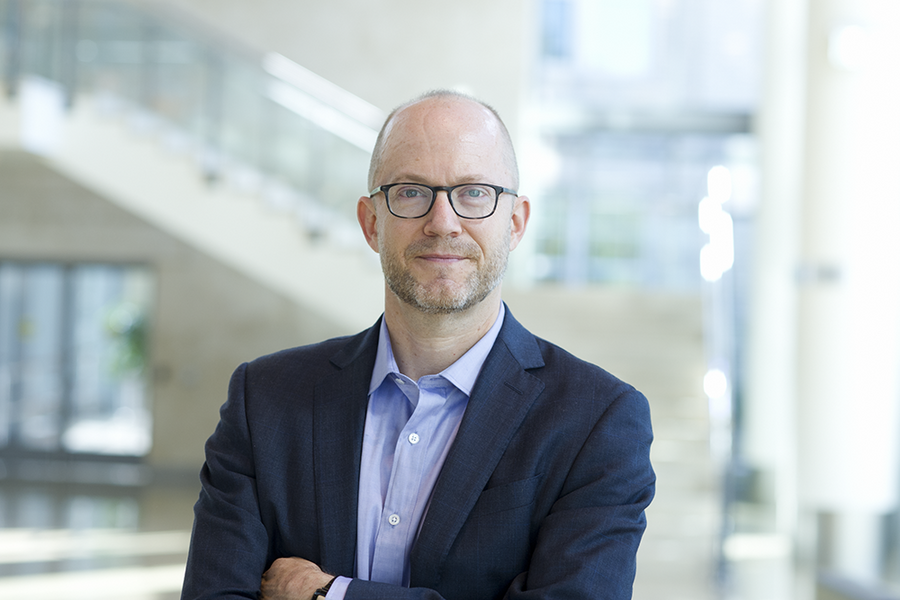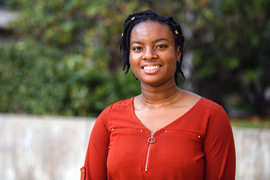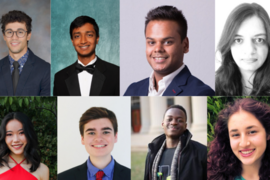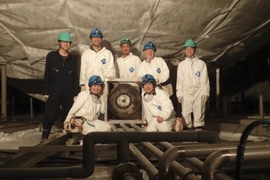Evan Lieberman is the Total Professor of Political Science and Contemporary Africa in the MIT Department of Political Science. He conducts research in the field of comparative politics, with a focus on development and ethnic conflict in sub-Saharan Africa. He directs the Global Diversity Lab (GDL) and was recently named faculty director of the MIT International Science and Technology Initiatives (MISTI), MIT’s global experiential learning program. Here, Lieberman describes international education and its import for solving global problems.
Q: Why is now an especially important time for international education?
A: The major challenges we currently face — climate change, the pandemic, supply chain management — are all global problems that require global solutions. We will need to collaborate across borders to a greater extent than ever before. There is no time more pressing for students to gain an international outlook on these challenges; the ideas, thinking, and perspectives from other parts of the world; and to build global networks. And yet, most of us have stayed very close to home for the past couple of years. While remote internships and communications have offered temporary solutions when travel was limited, these have been decidedly inferior to the opportunities for learning and making connections through in-person cultural and collaborative experiences at the heart of MISTI. It is important for students and faculty to be able to thrive in an interconnected world as they navigate their research/careers during this unusual time. The changing landscape of the past few years has left all of us somewhat anxious. Nonetheless, I am buoyed by important examples of global collaboration in problem-solving, with scientists, governments and other organizations working together on the things that unite us all.
Q: How is MIT uniquely positioned to provide global opportunities for students and faculty?
A: MISTI is a unique program with a long history of building robust partnerships with industry, universities, and other sectors in countries around the world, establishing opportunities that complement MIT students’ unique skill sets. MIT is fortunate to be the home of some of the top students and faculty in the world, and this is a benefit to partners seeking collaborators. The broad range of disciplines across the entire institute provides opportunities to match in nearly every sector. MISTI’s rigorous, country-specific preparation ensures that students build durable cultural connections while abroad and empowers them to play a role in addressing critical global challenges. The combination of technical and humanistic training that MIT students receive are exactly the profiles necessary to take advantage of opportunities abroad, hopefully with a long-term impact. Student participants have a depth of knowledge in their subject areas as well as MIT’s one-of-a-kind education model that is exceptionally valuable. The diversity of our community offers a wide variety of perspectives and life experiences, on top of academic expertise. Also, MISTI’s donor-funded programs provide the unique ability for all students to be able to participate in international programs, regardless of financial situation. This is a direct contrast with internship programs that often skew toward participants with little-to-no financial need.
Q: How do these kinds of collaborations help tackle global problems?
A: Of course, we don’t expect that even intensive internships of a few months are going to generate the global solutions we need. It is our hope that our students — who we anticipate being leaders in a range of sectors — will opt for global careers, and/or bring a global perspective to their work and in their lives. We believe that by building on their MISTI experiences and training, they will be able to forge the types of collaborations that lead to equity-enhancing solutions to universal problems — the climate emergency, ongoing threats to global public health, the liabilities associated with the computing revolution — and are able to improve human development more generally.
More than anything, at MISTI we are planting the seeds for longer-term collaborations. We literally grant several millions of dollars in seed funds to establish faculty-led collaborations with student involvement in addition to supporting hundreds of internships around the world. The MISTI Global Seed Funds (GSF) program compounds the Institute's impact by supporting partnerships abroad that often turn into long-standing research relationships addressing the critical challenges that require international solutions. GSF projects often have an impact far beyond their original scope. For example, a number of MISTI GSF projects have utilized their results to jump-start research efforts to combat the pandemic.









